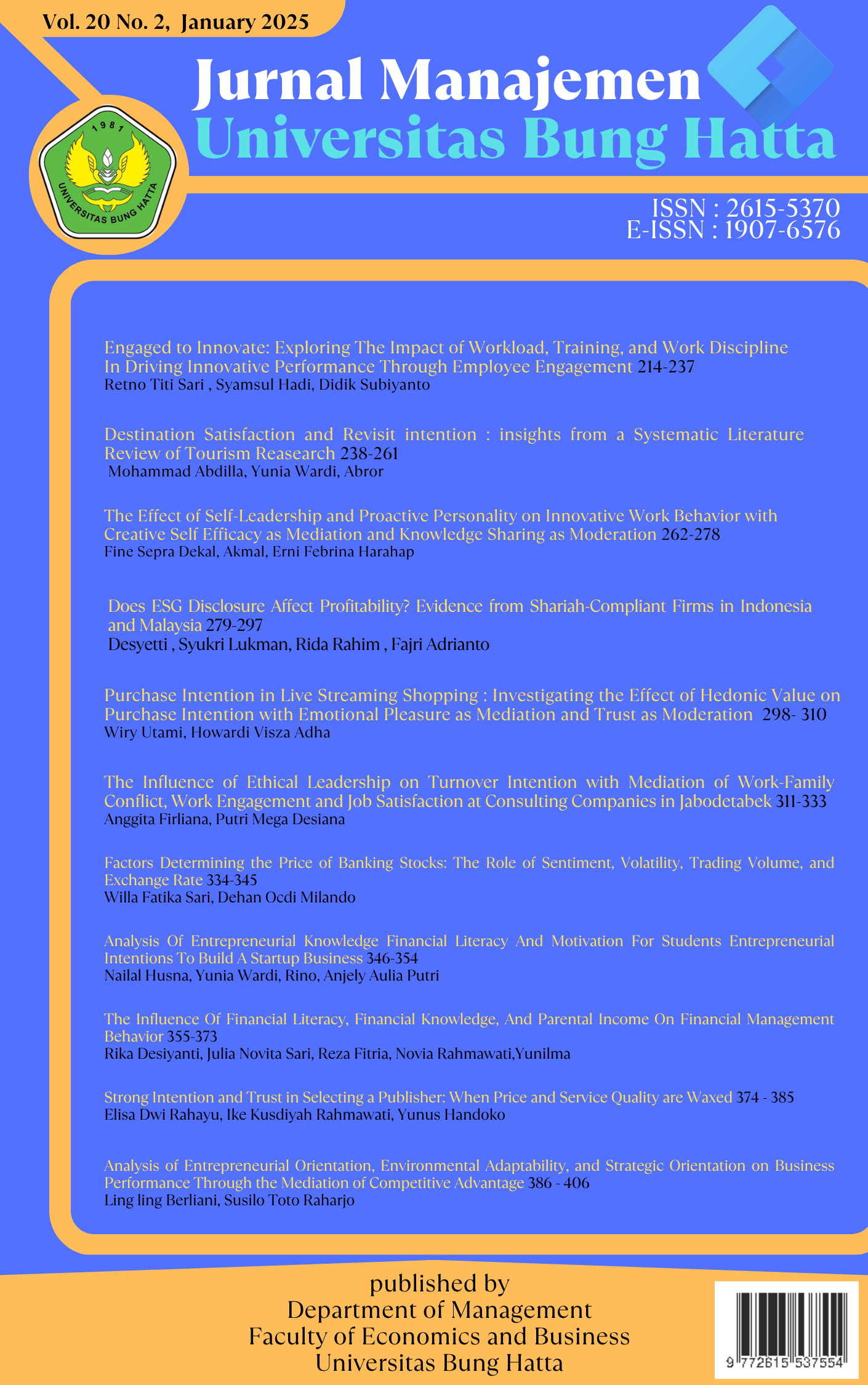The Engaged to Innovate: Exploring The Impact of Workload, Training, and Work Discipline In Driving Innovative Performance Through Employee Engagement
DOI:
https://doi.org/10.37301/jmubh.v20i2.28041Abstract
This research aims to analyze the impact of workload, training, and work discipline on the innovative performance and employee engagement of Yogyakarta City's Regional Revenue Division staff. It also examines how Employee engagement modifies the connection between these factors and innovative performance, addressing gaps in understanding their effects on engagement and innovation. As many as eighty personnel of the Regional Revenue Division of the BPKAD in Yogyakarta City were included in the collection of data for this study, which utilized the Non-Probability sample model as the sample technique. For the purpose of this study, primary data was collected through the administration of questionnaires. This study employs the tools of data analysis, namely Partial Least Square (PLS) is a variance-based structural equation model (SEM) and the software SmartPLS Version IV. The research findings reveal that workload and work discipline does not influence innovative performance, while training positively impacts innovative performance. Workload also has no effect on employee engagement; however, training and work discipline positively influence employee engagement. Furthermore, employee engagement positively affects innovative performance. It mediates the beneficial impact of training on innovative performance, but it does not mediate the association between workload and innovative performance. Employee engagement is not a mediator for the impact of work discipline on innovative performance. This research contributes to human resource management theory by examining how employee engagement mediates the relationships between workload, training, work discipline, and innovative performance. It supports existing literature by highlighting the key role of engagement in linking these factors to innovation outcomes.
Downloads
Published
Issue
Section
License
Copyright (c) 2025 Retno Titi Sari, Syamsul Hadi, Didik Subiyanto

This work is licensed under a Creative Commons Attribution-ShareAlike 4.0 International License.
Authors who publish with Jurnal Manajemen Universitas Bung Hatta agree to the following terms:
- Authors retain copyright and grant the journal right of first publication with the work simultaneously licensed under a Creative Creative Commons Attribution-ShareAlike 4.0 International License that allows others to share the work with an acknowledgement of the work's authorship and initial publication in Jurnal Manajemen Universitas Bung Hatta.
- The author holds the copyright of the submitted and published articles, with the understanding that articles are disseminated under the Creative Commons Attribution-ShareAlike 4.0 International License..
- The editor team is entitled to do the editing in accordance with the guidelines for writing or template in the Jurnal Manajemen Universitas Bung Hatta.
This work is licensed under a Creative Commons Attribution-ShareAlike 4.0 International License.












